Introduction: Subjectivity
In the question of pagan subjectivity, several groups of bearers of pagan traditions, worldview and values can be distinguished:
- Peoples living in various countries and on all continents, and have preserved their authentic traditions and pre-Abrahamic cults.
- They are also joined by peoples, tribes, and diasporas believing in syncretic religions that appeared later when local paganism adopted some elements of Christianity or Islam. Often these are border areas; shamanic and magical practices that exist directly among the people.
- Modern followers of pagan traditions, mainly in North America, Europe, Russia, and more broadly in Eurasia. These are the followers of the revived European or local pre-Abrahamic pagan traditions, well known from antiquity and in places preserved under the superficial layer of the Abrahamic religions.
All over the world, among the old and European New Right (Nouvelle Droite), conservatives, right and left populists, identitarians, traditionalists, and other supporters of ethnic and cultural sovereignty and plurality, there is a significant number of followers of pagan traditions. These traditions — from continuous to revived in recent centuries — ispo factum are sacred, social and political institutions, structures of identity, and subjects that form complex networks of influence and dissemination of information.
Therefore, the appeal to these circles, the value configuration and orientation of these circles, diasporas, activists, thinkers, and networks must be done from the standpoint of Pagan Traditionalism and opposition to Modernity.
Our main prerequisite is an orientation towards the good, strengthening, rooting and development of pagan traditions in an anti-sacred and anti-pagan environment of the Modern World, its politics, and geopolitics.
The systemic policy in the countries of the developed West does not reflect or express in any way the values of pagan traditions on the ground. Sincere participation and loyalty to the System are strange to say for pagan communities and organizations.
The right-wing conservative turn in the second half of the 2010s turned out to be either a simulacrum, an imitation or was strangled and channeled at the turn of the 2020s.
For the most part, this conservatism is a form of right-wing liberalism or an attempt to bring back 19th century bourgeois religious (Abrahamic) conservatism, which has no real relationship to Traditionalism and pagan values.
Many point out that the main structure of protests in different countries in recent years has been of the character of “peoples against elites”. Against elites who are a priori cosmopolitan and embedded in the global agenda. We can support this structure, taken modulo, in its pure form, but filling it with our content.
The world of Modern and Postmodern, globalism, technocracy, galloping virtualization, and digital control/dictatorship are disgusting and alien to us. The ideas of “archeofuturism”, so notoriously popular among European activists, turned out to be extremely close and consonant with the globalist project Global Reset and the Fourth Industrial Revolution from Klaus Schwab and his circles.
This adds a very important point to the wording: peoples against global elites, collaborators, and agendas from among the former, embedded in the bureaucracy, Big Tech, financial flows, colonial administrations, and Globalism in general.
For the multipolarity and plurality of cultures, peoples, and pagan traditions in all corners of the world. But against multiculturalism, globalization and glocalization, industrial and digital future.
Classical geopolitics and theories of international relations operate with states and military or economic blocs. In the case of paganism, we, in the spirit of realism, are talking about a real network initiative from below, which sprouts and should sprout at the level of social movements, NGOs, political parties, and governments. But it should be focused on the development and strengthening of pagan traditions in the field. There are very few countries in the world in which their native traditions are official religions, and they are still forced to play according to the global modern rules of the game and look for their place in the shadow of larger players. However, they should be seen as essential allies.
Paganism — represented by various organizations, networks of communities and co-believers, think tanks, their own publishing houses, media platforms, etc. — must become a subject and defend their interests.
We must support co-believers or other pagans everywhere, look for common points for contact, understand the difference of cultures and deep interests of partners, strive for compromises to achieve a common goal.
It makes sense to temporarily put aside even local historical conflicts between neighbors to withstand a common enemy.
The intellectual paradigm, the episteme of Pagan Traditionalism, makes it possible to develop a full-fledged unified political and geopolitical doctrine aimed at upholding purely pagan ideological interests. This work desperately requires its thinkers and pioneers.
West and East: the same Gestell
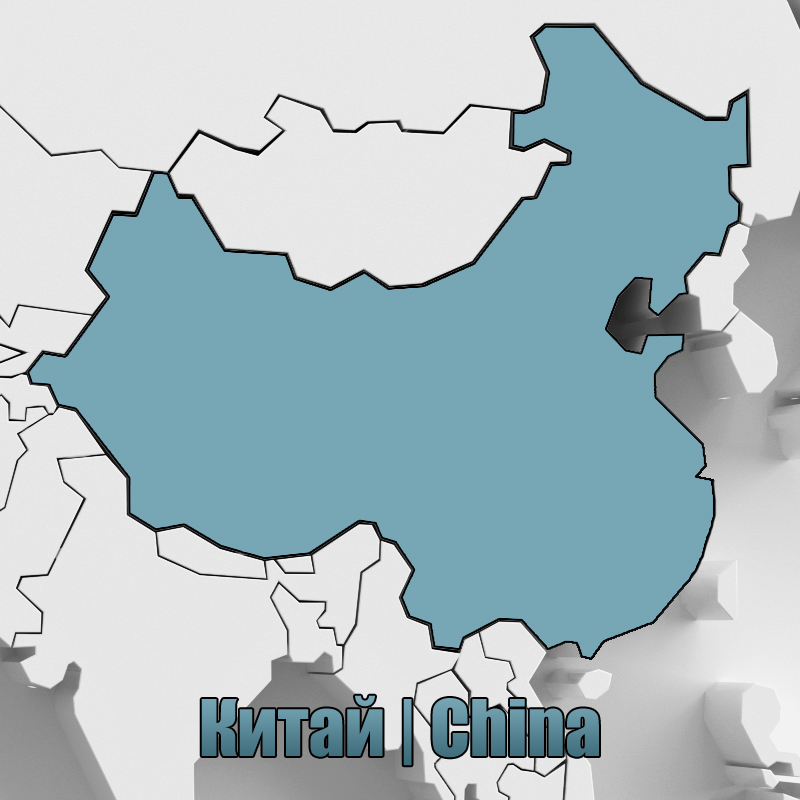
After the end of World War II, Martin Heidegger wrote that Europe was caught in the claws between the USA and the USSR. Both countries, both ideological blocs were the embodiment of a single beginning of Modernity and Gestell. The geopolitical enmity between the USA and the USSR was a struggle over which version of Modernity would win and who would be its main guide in the coming years. From the point of view of Traditionalism, there is no sense in choosing “for capitalism” or “for socialism”, because both options essentially relate to Modernity, which Traditionalism completely rejects.
Today we are witnessing a similar configuration in the bipolar confrontation between the United States and China. Many want to see China as an anti-Western, anti-Modern pole of power, but this is an illusion.
Modern China is a deeply Western system based on the Western socialist idea (affected for the worse by some purely Asian features), embedded in the global capitalist, consumer economy and occupying the first place there. China is one of the leaders in technology, IT, and logistics.
In its development, China has entered the phase of deploying its internal totalitarianism using digital control and social rating.
China has its own globalist ideological and economic doctrine “One Belt and One Road”, within which it carries out colonial and expansion projects in Africa, South America, Eurasia, and the Pacific region.
In the field of philosophy, the doctrine of a special Chinese way of the formation of technology is formed, but this is still the same copying and transfer of Western ideologemes. The metaphor of a computer with Software and Hardware fits here. The confrontation between the USA/West and China is presented as a conflict between two operating systems for access to computing power (resources, money, and routes). But the problem lies in the fact that both systems are rigidly dependent on the Western in its deep foundations technical base, the Hardware. Therefore, talking about bipolarity or multipolarity at this stage is fiction, if every potential new geopolitical alliance or pole seeks to act according to Western logic. Even more ridiculous is the attempt to create your Hardware for your Software. This will not be a step towards autarchy and independence, but will only be a separate reiteration of the same Western path of development and vector to the future. This technological lining, one for all, is a manifestation of what M. Heidegger called Gestell.
Why develop their technological counterparts and symmetrically copy the logic of the West for non-Western actors? Digital expansion should be answered not by developing “domestic analogs”, but by asymmetrically chopping off the cable on the other side of the Atlantic, turning the enemy’s servers into a heap of deactivated junk.
In the meantime, China, like Russia and the United States, is working to strengthen and rigidly impose technology, to expand it. Gestell does not care who will be the subject who will erect him on his shoulders to the kingdom: Silicon Valley or the Chinese coast.
The confrontation between the West and China is a new round of conflict within the Gestell, this time in the context of Postmodern culture and current Globalism. Here again, there is no space and arguments for sincere support for one or another pole.
Vectors of work regarding China and its project:
- Total erosion of trust in China as an anti-Western and non-Modern subject of international relations and geopolitics.
- An active reference to the colonialism and exploitation by China of Africa, South America, the Pacific space up to Australia and New Zealand and other countries in the spirit of Modern colonialism of previous centuries.
- Support and protection of the originality of the way of life of the peoples in these lands, the inadmissibility of educational and cultural programs established by China.
- An indication that China has its own, quite analogous to the Western, globalist project to impose its ideology and goods on all “backward peoples”.
- It is necessary to examine the mythology, metaphysics, and history of China to counter the ideologies of the CPC and Xi Jinping with authentic arguments for Chinese identity, alternative myth, and anti-technological metaphysics.
- It is necessary to investigate the folk beliefs and cults that have remained in the periphery of the focus of the CPC’s propaganda.
- Strengthen research and dissemination of information in the Chinese language on the anti-communist arguments of Traditionalism and its benefits in protecting traditional Chinese religions, spiritual philosophical, and religious schools.
- Seek and support internal Chinese traditionalist dissidents, supporters of local pagan beliefs.
- It is necessary to disintegrate the integrity of the “ideal Chinese citizen”, relying on the multi-ethnicity of the Chinese population and support regionalism.
- Comprehensive opposition to the idea of “social rating” and digital concentration camps as the highest form of totalitarian anti-human practices will be positive.
- Sabotage and disruption of the development of the territory of Zomia (South-East Asia), adjacent to China in the south, will be positive. Dismantling of roads and communication lines. Zomiya should become a new free and safe place, where Chinese and representatives of other nationalities, dissatisfied with the central policy of the CPC, can escape.
India and Asia

Modern India, like Europe in the era of the Enlightenment, passes through the stage of building a unified nation based on the ideology of Hindutva. Like any other modern project, the Indian nation genesis internally creates some artificial “canon of Hindu” and “the canon of faith”, which are leaving out of the board the part of ethnic plurality and inconvenient for the “young nation” features of the wide field of the sacred traditions of India, which has a huge amount of darshans, sometimes significantly different from each other. In other words, India is threatened by modern unification and the creation of a religious canon, which a priori will be much less flexible and much bonier than living tradition.
Nevertheless, the Prime Minister of India Narendra Modi is an open follower of Shiva, whose positive steps allow us to turn a blind eye to some controversial aspects of the Hindutva (after all, this is an internal affair of the Hindus themselves).
Orientation towards Indian direction:
- The longstanding confrontation between India and Pakistan is of key interest to pagan traditionalists.
- The terrorist Islamic State of Pakistan should not exist. Modern Pakistan is actively supported by Turkey and China.
- The Valley of Kashmir belongs to India and is an ancient sacred place, the birthplace of the teachings of Kashmir Shaivism, expressing the brilliant teachings of Advaita.
- The Reconquista of Kashmir should be welcomed and supported.
- Implicitly with the liquidation of Pakistan will be released valley Chitral and surrounding hills, where from time immemorial live so Dardic peoples and kins, with the most famous of them the dying out Kalash people, the last pagans in the region to be subjected to violence and harassment by Islamists. Other peoples need to be de-Islamized and returned to an authentic way of life and traditions.
- Hypothetically possible save the existence of Chitral as autonomy within India or give the local peoples complete freedom to live in their familiar format of tribes and tribal alliances in their valleys.
- Likewise, the resolution of the centuries-old conflict over the construction of the Rama Temple on the site of the former Babri Mosque should be welcomed. The start of construction was laid by the Prime Minister personally in 2020.
- In Southeast Asia, Hinduism, syncretic cults of Hinduism and local beliefs, Hinduism, and Buddhism should be supported to create a counterbalance to Islam and Christian missionaries.
- Zomia should also be supported as a safe place for dissidents, fugitives, and separatists from China.
- Situational support the efforts of the Buddhists and the local authorities to curb the expansion of radical Islam in the region, as did the Myanmar authorities in the 2010s against the Rohingya people.
Tibet
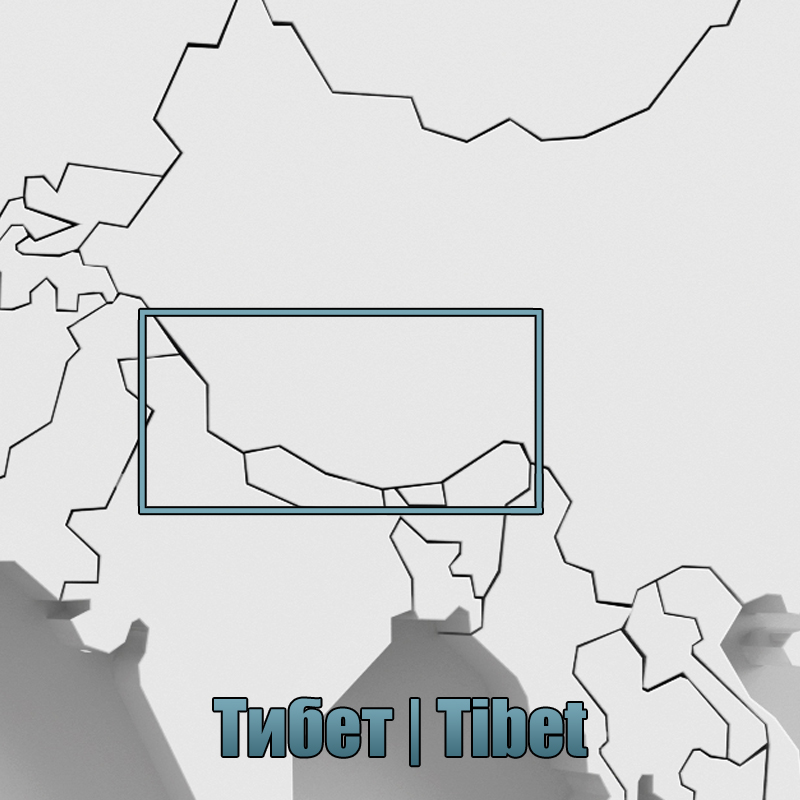
- Unconditional de-occupation and expulsion of China and the CPC ideology from the region.
- Full support for Hinduism and Shaiva schools.
- Restoration and support of a reputable status of local shamanic traditions such as Bon, Dzogchen (as distinct teaching from the school of Buddhism), local shamanism and animism, etc.
- Buddhism in its modern form is completely loyal to globalism and indifferent to the problem of digital substitution of reality. Historically, Buddhism has a negative attitude towards local pagan traditions and is responsible for the violent persecution and genocide of a number of them (the persecution and execution of shamans in Siberia). Therefore, its influence and distribution should be limited.
- A positive assessment of the restoration of Bon by King Darma in the 9th century.
Turkey and Pan-Turkism
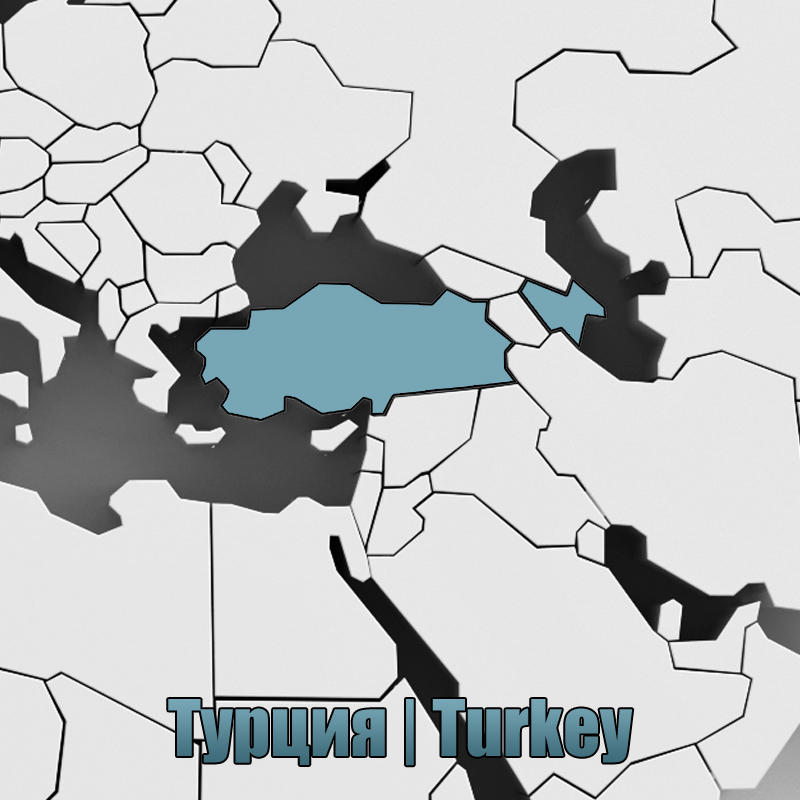
As in the case of Pakistan, the state of Turkey and the pan-Turkist ideology of Recep Tayyip Erdogan should not exist.
As part of modern the Pan-Turkic ideology, that motivates Turkey for geopolitical expansion, it supports militarism and cultural offensive in Azerbaijan and the Caucasus, as well as through Pakistan to Central Asia. Pan-Turkism is built on Islam, which is the organic and existential enemy of all pagan traditions in any part of the world.
Turkish and Turkic directions:
- Cancellation and debunking of the Pan-Turkic Modern ideology.
- Support for the ideas and circles of followers of local Tengrianism (the cult of Tengri, the God of Heaven) and shamanism in Turkey, Azerbaijan, on the lands of modern Pakistan, and inside Russia.
- Support for ethnoreligious identity, political regionalism, and separatism from the Islamic Pan-Turkic authorities. An indication of the poly-ethnic and not the only Turkic origin of the modern population of Turkey, Azerbaijan, and Pakistan.
- Support for disintegration and centrifugal ideas and movements, propaganda of locality, and revival of clan, folk, and pagan traditions in the region.
- It is worth supporting all anti-Turkish sentiments in Central Europe, and especially in Greece (Cyprus belong to Greece), the Balkans, and Armenia. Use anti-Turkish and anti-Azerbaijani factors as a common platform for local pagans.
- Situational, it is possible to support the ideas of Orthodox revanchism and the return of Constantinople for the sake of the destruction of Istanbul. It is worth emphasizing that historically and today Turkey is an enemy of Russia, Europe, and a deceitful ally in the person of R. Erdogan.
Near/Middle East

The Middle East is one of the most problematic regions.
Some of the key Middle Eastern pagan cults were repugnant to both Greeks and Romans, so insisting on their revival is problematic. From the point of view of Pagan Traditionalism, the genesis of Abrahamic monotheism one way or another follows from the cults of the dark, jealous and lunar Gods of these lands. The common Judeo-Christian-Islamic “Deity” is regarded as a titanic beginning, filled with Hubris (ὕβρις).
- Undoubtedly, it is necessary to level and debunk the role of Judeo-Christian messianism in international politics and geopolitics. From the Russian Orthodox Katehon concept to North American millenarianism and Manifest Destiny. Not to mention the multitude of regional prophecies and mystical underlays under political doctrines and gestures.
- We need propaganda and justification of locality and regionalism. The Middle East is one of the cradles of religious universalism, globalization, and the metaphysical geographical source of Modernity as a whole (represented by Christianity that came to Europe).
- As a hypothetical intermediate step, it is reasonable to insist on the complete isolation of the entire region. So that all actors can solve their historical and theological contradictions on their own. Without creating a black hole into which many international forces and resources are being drawn that are not involved in the Abrahamic context thrown on them.
- A detailed study of the path of the formation of Abrahamic monotheism (creationism) in the bosom of the Semitic peoples is necessary to understand the prerequisites and logic of this metaphysical error that occurred in antiquity.
- Still, it will not be superfluous to study and reveal the non-monotheistic past of the Semitic peoples, active enlightenment about pagan cults, and the roots of Jews and Arabs. This will also help in splitting their unity into local, tribal, and clan communities with their cults.
- In the case of Iran, it is necessary to support the restoration of the radically dualistic Zoroastrian tradition as opposed to the stagnant regime of the Ayatollahs and Islam in general.
Africa

The main imperative concerning the countries and peoples of Africa is tough decolonization in all spheres. If the choice of the peoples of Africa is to live in adobe houses and maintain their way of life, with inherent violence, the same as thousands of years before, then this is their choice and internal affairs.
Imperatives to Africa:
- The curtailment and complete ban on educational projects, infrastructure modernization, lending, and especially the export of weapons.
- Minimization and complete prohibition of Christian and Islamic missionary work.
- The seizure of weapons from the juntas and the population. Refusal to support local semi-criminal and paramilitary puppet governments.
- Expulsion of all transnational corporations, their branches, and industries.
- Curtailment of predatory exploration of mineral resources, mining of rare-earth metals, and exploitation of slave labor of local people, especially children.
- The previous point should lead to the collapse of resource extraction and logistics for developed countries and the production of high-tech gadgets. This will be a link on the road to deindustrialization, detechnologization, and the collapse of Globalism.
- Launching a subsidized program to return the once African population and migrants from Western countries back to their homeland (a similar program can be applied to refugees from the Middle East).
- If necessary, the forceful evacuation of the white population from South Africa. Final dismantling of the “Rhodesia” and “White Africa” projects.
- Optionally, before the outcome — forced demining of territories and continuous vaccination of the population against a wide range of diseases.
South America
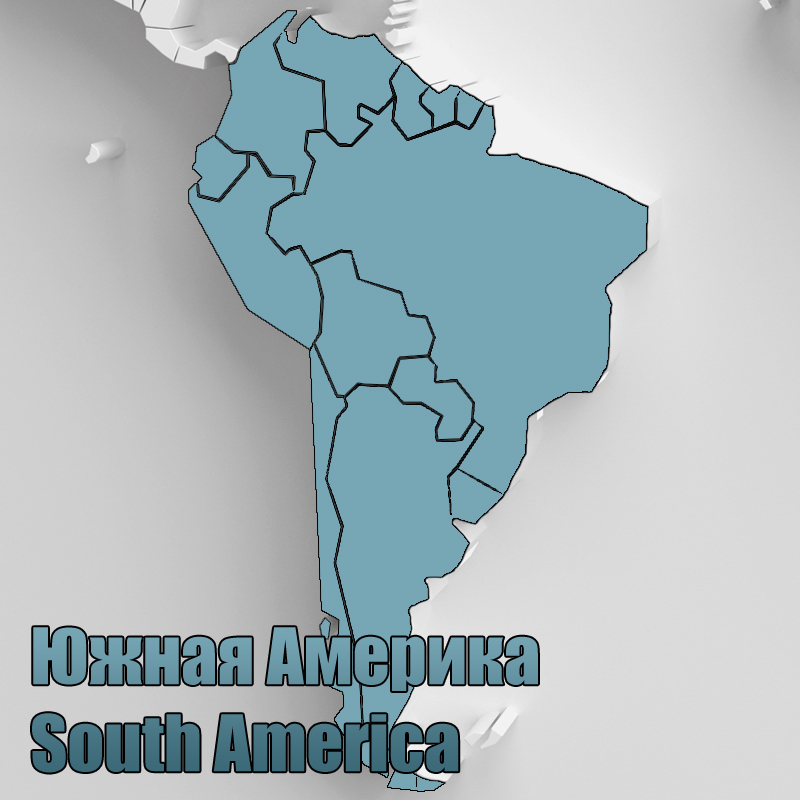
Today South America is a seething cauldron of ideas and a clash of interests for many global players. One of the potential poles of multipolarity. And Central America, located on the lands of ancient Mesoamerican civilizations, is a transport hub for migrants, products, and smuggling to the countries of North America.
One of the characteristic problems of the population of the countries of South America is the metaphysical and ethnocultural identity of mestizos and creoles, which are significantly represented in the populations. This is complicated by the fact that South America is significantly removed from the geographical homeland of the white population from Europe and black from Africa, which complicates the return migration and integration.
Closely related to this is the problematic need for the return of large European (white) diasporas to their homeland, which needs them and should be useful now, during the acute migration crisis in Europe.
Outlines and imperatives:
- Decolonization and restoration of pre-colonial languages, culture, traditions, and practices. Supporting local traditions of shamanism, animism, and even late religious mysticism and syncretism, from Mexico to the southern tip of Argentina.
- Recultivation and final assimilation into tribal cultures of a mixed population. If whites or blacks want to stay, then they must become part of the local tribes and abandon Catholicism or Protestantism, learn the language and traditions of the locals.
- The incident of Brazilian President Jair Bolsonaro and his shadowy ideologue Olavo de Carvalho, who lives in the United States, shows the blindness of the Western right and conservatives, who recognized their figure in him. Bolsonaro turned out to be a refined representative of modern liberalism, who ordered the forced modernization of the archaic tribes living in the Amazon basin. This position is radically contrary to the values and goals of Pagan Traditionalism. The distinctive way of life and the existence of the Amazon tribes are more important than the existence of Rio de Janeiro.
- Another problem of protecting local tribes and traditions is that they are mainly protected by corrupt left-wing human rights defenders and NGOs who use them as puppets in political opposition to the populist center. Or they are agents of the government and sabotage the protection to destroy the tribe and free the land for deforestation. The protection of the pagan Amazon tribes must be addressed by the more right-wing pagan traditionalists, pluralists, and anti-modernists.
- Even wider, the popularity of leftist ideas in South America, coupled with Catholic and Protestant theologies, creates a problematic field for the deployment of a springboard for Pagan Traditionalism among the local population, and not just the European diaspora. Here one should turn to mystical shamanic syncretism and the experience of dual faith, a deep rethinking of superficially understood Christianity in the mainstream of local animism, as shown by the example of the Runa tribe in Eduardo Cohn’s book “How Forests Think”.
- You should also support radically rebellious tribes that do not accept Christianization and maintain their way of life in the remote jungle.
- Regionalism should be supported again and infrastructure projects should be sabotaged. The destruction of communication lines between remote regions and industrial, financial, and cultural centers, strikes a blow to globalism and centralism.
- The dismantling of globalism and the destruction of logistics routes will in turn hit the drug business. The drug must once again become a sacred plant in the skillful hands of a shaman, and not a commodity on the global black market, which only stimulates the intervention of stronger states, technological development, and exploitation of the population. The last points are also valid for Central Asia, Afghanistan, and Southeast Asia.
North America

Since the United States of America is a project of the European Enlightenment, created from scratch and based on Protestant sects, the loyalty and true patriotism towards them on the part of local pagans and representatives of the Indian population looks doubtful.
Among the supporters of the folkish position (ethnocentrism) in North American Asatru and Odinism, it has always been commonplace to assert about the European roots of tradition and cult. The connection with Europe, and Scandinavia in particular, has been emphasized to the extent that the leading American ideologue of Asatru, Stephen A. McNallen, publishes his title book on European spirituality “Asatru: A Native European Spirituality”.
The trend towards finding and establishing ties specifically with European roots among North American Asatru was evident until the mid-2010s. The turning point was the event of the election campaign and the victory of the 45th US President Donald Trump.
By employing right-wing liberal populist rhetoric and addressing “one-storied America” he was able to mobilize a patriotic electorate and distract local pagans from strengthening ties with Europe and opposing local left-liberal discourse and Washington’s “Swamp” (Deep State).
The victory in 2020 of Joseph Biden, who became the 46th president and re-proclaimed the left-liberal LGBT/BLM ideology in domestic and foreign policy, should have a sobering effect on local pagans and traditionalists and reorient them to other poles of identity and strategies of relations between the people (pagan communities, kindreds & tribes) and anti-national elites of the West and East coasts.
Proposals for the USA:
- Cancellation of loyalty to Washington and its queer ideology.
- Qualitative actualization of the European roots of Asatru/Odinism, the transfer of the idealistic idea of the Fatherland on the other side of the Atlantic to Europe.
- If necessary, then up to white back migration to Europe.
- Support for separatism in the states of the “rust belt” with a predominant population of former German settlers.
- Creation of an independent pagan enclave in Vinland.
- Promotion of the European roots of identity in the American army, undermining patriotism and loyalty to the flag and the country built by anti-pagan Protestants. This can be achieved through the use of liberal religious laws in the US military, networks, and groups of Asatru believers in the army and among military contingents deployed in other countries.
- Situationally support tribalism of armed Odinists in hard-to-reach regions of the USA and Canada. Ernst Jünger’s “go into the Wood” strategy is quite compatible with the style of the Frontier era and the culture of log cabins in the woods celebrated by Henry Thoreau.
- Transformation of the West and East coasts into scorched wastelands and zones of sacred exclusion and taboos on living there.
- It is necessary to show solidarity and find common points of interaction with the diaspora of North American Indians. Restore their tribal traditions, confirm their land claims, jointly fight for identity and freedom from the anti-national dictatorship of liberals, capitalism, and Big (what is realized in China as open means of control and repression is realized in the United States through private companies, advertising and credit markets in close shadow cooperation with intelligence).
- As in the case of the Indians of South America, it is necessary to expel the left and liberal NGOs that deal with the rights and protection of Indians and to transfer them to the right-traditionalist ideological positions. For this, it is necessary to familiarize the Indians with the liberation and sacrocentric doctrine of Pagan Traditionalism.
Europe
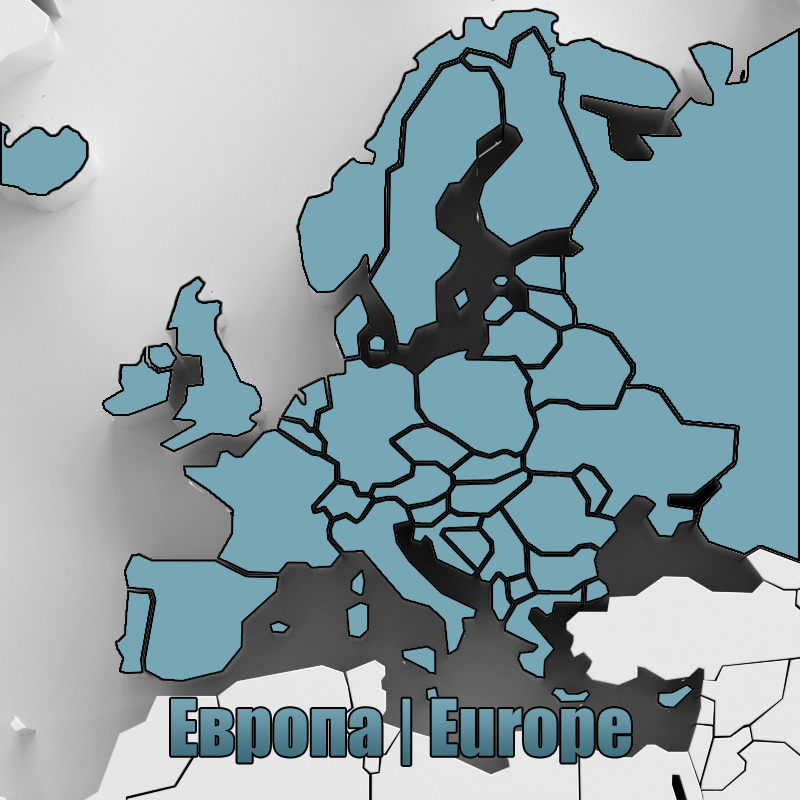
The deplorable situation in Europe has already been said in abundance to pay attention here to the detailed genealogy of the “decline of the West”.
As in South America and the United States, the right-wing parties in Europe express only a cosmetically corrected discourse of the Enlightenment and right-wing liberalism, and not genuine traditionalism and the struggle for the Divine and the rejection of the industrial-technological path of development (Gestell).
Among the European right and conservatives, there are already many ideologies and proposals for how to act, to this set we will add our imperatives that we consider necessary.
European imperatives:
- Refusal of any support for the EU, its bureaucracy, and institutions.
- Of course, we are in favor of a Europe of pagan ethnic traditions.
- Many young people who profess paganism are forced to join the larger and more established conservative movements that express Catholic or Protestant values or have Christian church patronage. This deplorable situation should be ended, and the pagan patriots of Europe should openly form their alliances and ideological agenda, even if it runs counter to the mainstream rhetoric of Eurosceptic parties. Do not be afraid of splits.
- All right-wing conservative activists, party members, youth movements, and stand-alone young people should establish their pagan networks of connections, their media, and platforms and in every possible way accentuate the identity of pagan Europe, not Christianity.
- It is necessary to resist left-liberal and progressive tendencies within European paganism: Wiccans, queer pagans, supporters of universalism (inclusive paganism), the adaptation of pagan traditions to the requirements of Modernity and tolerance, etc.
- If the deployment of a pagan political doctrine will lead to a revision of the borders and the existence of modern European states — so be it. Better a separate pagan republic or small principality than a united France, but with a Catholic monarch.
- As a result, we consider it reasonable to form pagan enclaves both in cities and in remote regions of Europe. Formation of diasporas, within which finance, resources, and specialists will circulate.
- It is also necessary to establish a dense network of horizontal ties between representatives of different traditions, the creation of their think tanks.
Russia

Today Russia appears before the world conservative audience as an ideological outpost of conservative values. Unfortunately, this is far from the case.
The domestic political reality of Russia can be described by the American term “Swamp” (Drain the Swamp). Inside Russia, we have a similar sharp tension between the authoritarian oligarchic elites and the police guard on the one hand and the common people (Russians and many others) on the other.
Elites actively advocate the modernization and implementation of digital control technologies based on the Chinese model and supplied from there. Globalization agents hold key positions in government, financial and banking sectors, and IT.
Patriotic discourse within Russia has been successfully imitated by propaganda aimed both at the domestic Russian audience and to create a corresponding illusion and propaganda in the West. The goal is to convert patriotic discourse into votes and keep power in an unchanged status quo.
There is no real political conservative ideology, which has led to the fact that Russia has already lost several generations of young people who are thoroughly cosmopolitan and are carriers of the Western left-liberal ideology. They are practically useless for the development of pagan traditions locally.
Russia is also a country in which there is systematic persecution and demonization of pagan traditions: from modern Slavic-Russian paganism to the authentic traditions of indigenous peoples.
Among the Russian pagans, there is an adequate understanding of a difficult situation and quite good working strategies and development plans. The problem is the lack of passionaries and a sufficient amount of resources: fellow believers do not seek to support each other financially.
In Russia:
- Unconditional and immediate strengthening of the subjectivity of Russian paganism and Russian-speaking followers of German-Scandinavian paganism. It is not forbidden to seek contact with adequate followers of Hinduism (not ISKCON or false gurus of neo-Hinduism).
- Cooperation between contemporary Russian pagans and diasporas, ideologists, priests, and representatives of the traditions of the indigenous peoples living in Russia is imperative. For each other, we are the only organic allies within the country.
- Everywhere there are pagan movements and small groups of co-believers. It is necessary to highlight, enhance and acquaint them with each other.
- Curtailment of the development of the Russian North and Taiga, the elimination of all industrial structures, and any, both international and domestic, projects for the development of untouched lands.
- Revision of legislation in favor of real protection of indigenous peoples and greater freedom of pagan traditions. For this, the pagan community must mobilize its lawyers, opinion leaders, and philosophers to develop and write bills and proposals, even if it is “for the future”.
- Total protection and restoration of the way of life and pagan traditions of indigenous peoples is necessary:
- starting with the peoples of the Far North and the Far East, who will be the guardians of these living spaces;
- through the support of the Tengri cult in Tatarstan — an anti-Islamic and more ancient identity, opposition to Pan-Turkism;
- shamanism in Altai, Khakassia, Tuva, and Buryatia — an anti-Buddhist actor of local identity;
- the traditional religion of Mari, the Volga region, Karelia, etc.;
- up to support of pre-Christian and pre-Islamic traditional religions in the Caucasus: Ossetia, Adygea; modern paganism in the south of Russia up to the support of the Gothic branch of German-Scandinavian paganism in the lands where the Goths once lived;
- up to support and establishment of contacts with pagan organizations in the Transcaucasus: in Armenia, Azerbaijan, and Georgia.
Outer Space

- Complete, unconditional curtailment of all space programs and aerospace systems without exception. By all countries, companies, and industries.
- The development of the space industry is a funnel into which abysses of resources are included and collapsed and which stimulates the very exploitation of subsoil on a global scale.
- The sky should be free for the eyes of Gods and spirits, for the souls of ancestors. All satellites and space stations must be burned in the dense layers of the atmosphere.
- This will lead to the collapse of global communications and logistics networks, knock out essential foundations from Gestell and strengthen real multipolarity without globalization.
- Heaven is the Father-God; the word “cosmos” needs to return the original meaning of the Greek word the “order”, the “harmony”, ordered by the Gods of the middle world of people.
Resume
The presented brief imperatives and proposals are a kind of preliminary sketch of the political and geopolitical picture that reflects the interests of both modern pagans (neopagans) and many autochthonous peoples who have preserved their faith and are based on Pagan Traditionalism.
These are not only ideological guidelines and instructions in which direction our comrades-in-arms all over the world should work and develop. All those who perceive their ethnic traditions as the inner spiritual core of the people, who seek to protect their land, Deities, values, and way of life.
But these are also some ideal images that should lay down concrete values and influence everyday choices and practices concerning the surrounding reality, assess events, news from the world of technology, IT, politics, lay an attitude to culture (total active nihilism in relation to mass culture), to infrastructure projects, to certain types of industry, subsoil development, etc.
It turns out that if your fellow pagan is a fan of Elon Musk, then, unfortunately, he is your enemy, but a Pagan Traditionalist from a neighboring nation is a potential ally in the common struggle.
We openly admit that the principles we have outlined go against the tide of many right-wing and left-wing conservative, populist and geopolitical schools, analyzes, doctrines, and ideologies.
We are looking for our path. The pagan anti-modernist subjectivity implies radical revisionism of the existing descriptive models.
Intermezzo: participation in local politics and bureaucracy is possible and probably even necessary for pagans. But with a single purpose: to siphon from there and lock all resources on the maintenance, development, and protection of their pagan community or local organization. We need wide networks of infiltration and our people in all structures and bodies to use them for our needs and only for our needs.
We must defend our interests and our identity, even if it runs counter to the nationalist pathos of the old ideologies.
We do not need a return to the old bourgeois conservatism of the eighteenth and twentieth centuries, we need the return of every nation to its Homeland.
The myth is our Homeland.
Askr Svarte (2021 e. v.)











